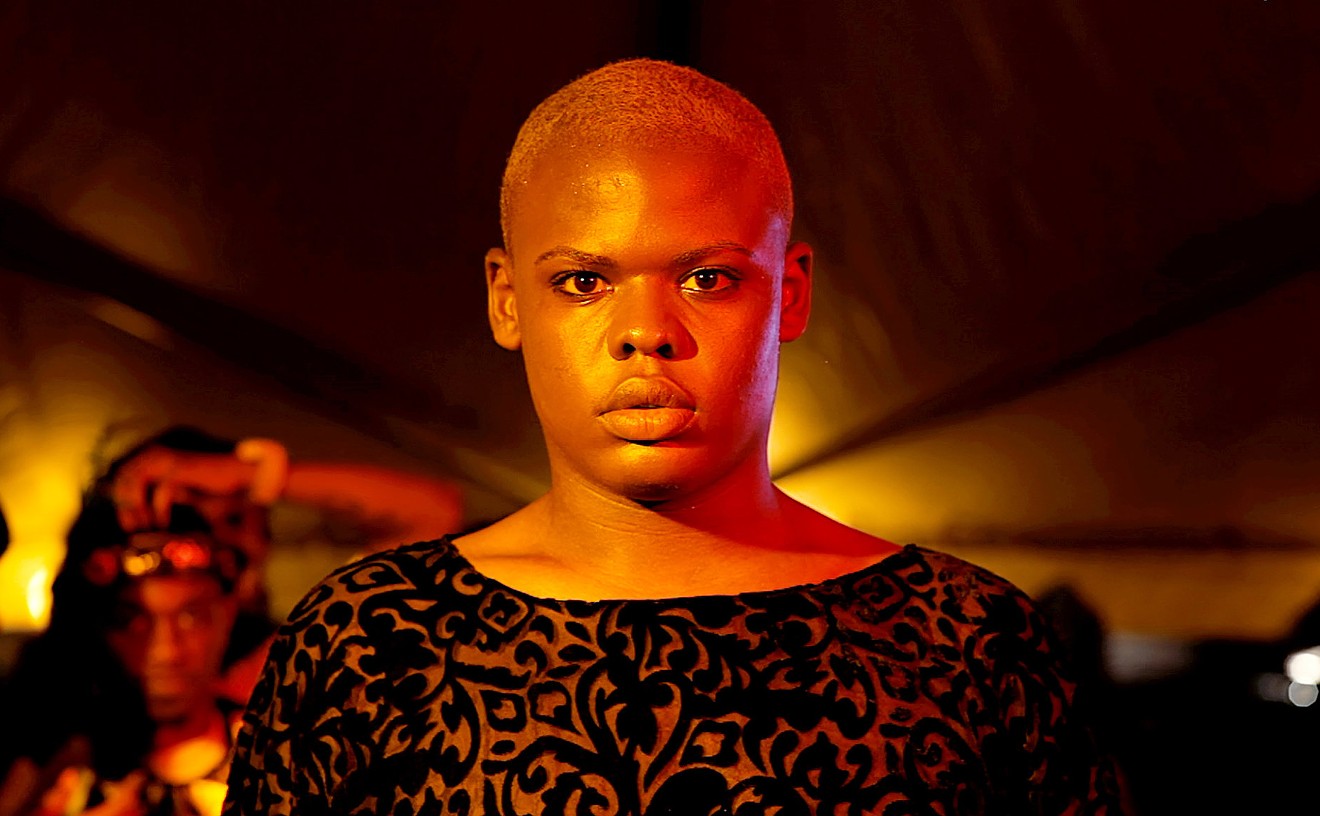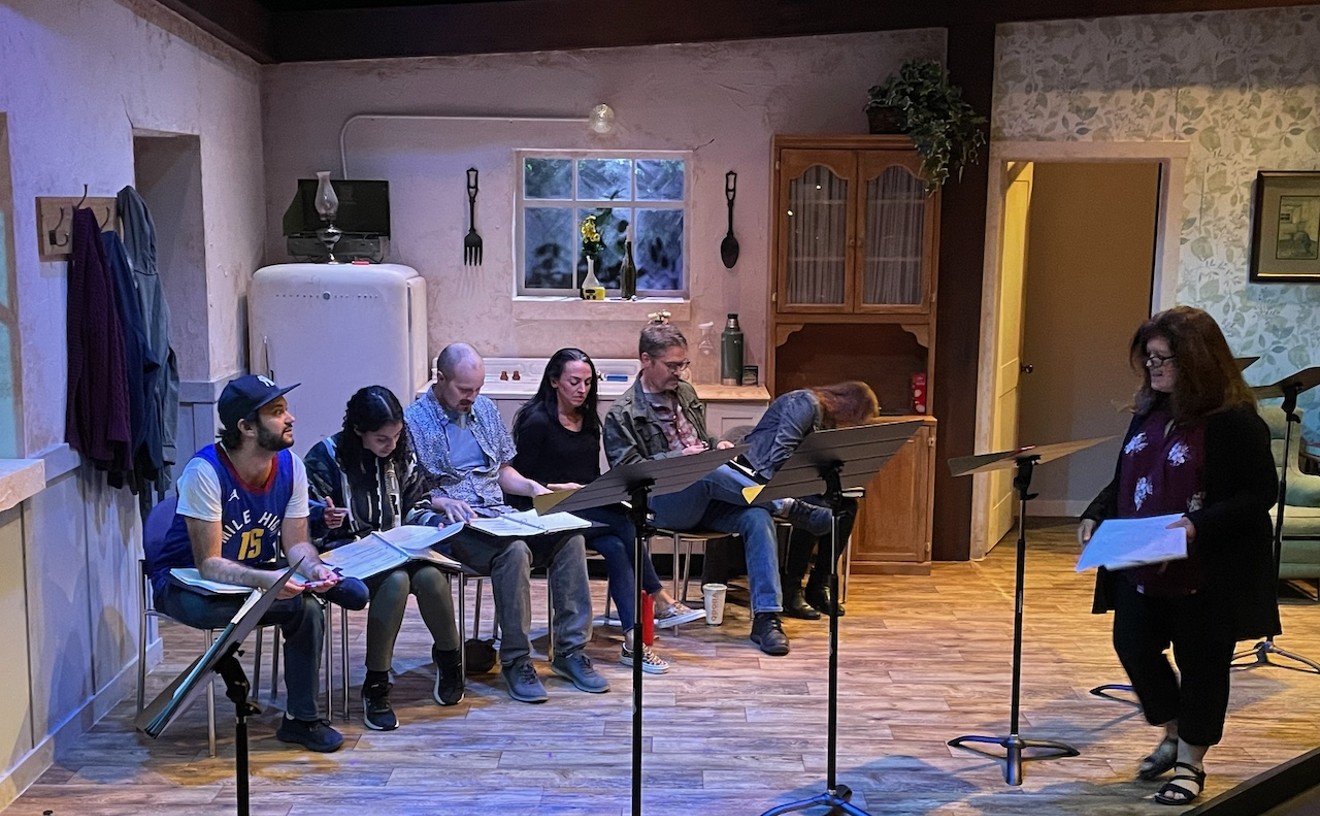The characters in Twelve Angry Men are straight-up '50s stereotypes: the wishy-washy adman; the mindless sports fanatic; the pathetic old guy whose life is lonely and filled with regret; the onetime slum kid; the paranoid racist; the Eastern European immigrant — Jewish, no doubt — who, bearing the heavy weight of his own history on his shoulders, shows a deeper respect for this country's principles and ideals than most Americans do; and, of course, the loudmouth with the hair-trigger temper whose rage is just a cover for the grief and loss roiling in his chest, and who we know will end up repentant and in tears. (I'm not sure why male violence and male self-pity are so relentlessly and ubiquitously intertwined in this culture, but they are.)
But though it's dated, the play is also intelligent and well-crafted, and the plot clicks along nicely. And you can't really fault Reginald Rose, who wrote the original TV script, or Sherman Sergel, who adapted it for the stage, for being prisoners of their times; every one of us is. Twelve Angry Men makes some points that are as valid today as they ever were. It talks about the crucial importance of a fair trial for those accused of a crime, the difficulty of arriving at the truth, and how necessary it is to pause and question our own prejudices and assumptions. You can imagine how revelatory — even deep — its insights into the justice system must have seemed when the play first appeared.
In a hot room around a long table, jurors meet to decide the fate of a sixteen-year-old on trial for the murder of his father. We're never told the kid's race, but he seems to be black. Eleven of the jurors believe in his guilt; only Juror 8 feels doubt, and he insists on examining the evidence piece by painstaking piece. The verdict must be unanimous. As the men argue, yell, and sometimes threaten each other, as vote after vote is taken, holes appear in the prosecution's story, and in turn, each juror begins to waver. We realize that every one of them is judging the case through the lens of his personal history and belief system, and the play becomes an examination of character.
True to its period, Twelve Angry Men assumes a stable, peaceful and fundamentally fair system, one in which racist ravings are met by silence or rebuke rather than replicating virus-like, and moving at warp speed through cyberspace and along the airwaves to influence political discourse. This is an America in which reason prevails and one rational, thoughtful man can make all the difference. As I watched, I couldn't help thinking about another sixteen-year-old defendant: Josh Beckius, whose story I covered for this paper a few years back. Beckius was sentenced to forty years in an adult prison for a murder committed by someone else when he was fourteen — a murder at which he may or may not have been present, and which he almost certainly didn't realize was about to occur. Beckius was a working-class kid, doomed by the dereliction of his lawyer and the smug callousness of the Boulder judicial system. What if one person in that system had had the simple decency shown by Juror 8, and had investigated the case thoroughly before throwing away a teenager's life?
Spotlight Theatre Company has come up with a clean, skillful production, and director Linda N. Suttle has assembled a group of actors who work well both individually and as an ensemble. Paul Page makes Juror 8's quiet strength vital and interesting; Robert Kramer lends all kinds of juice and passion to volatile Juror 3; precise, gray-suited and lawyerly, Rich Beall offers an interesting contrast to all the high-volume drama around him; and Rick Bernstein gives his macho juror — who's interested only in sports and getting out of the room as quickly as possible — just enough of a weirdly goofy spin to make him interesting. What we end up with is a crime procedural as entertaining as an episode of Law & Order, only smarter, more tightly constructed and better intentioned.











